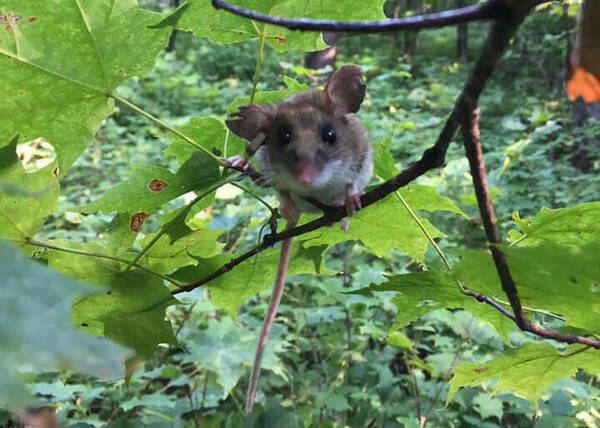
The University of Notre Dame’s Linked Experimental Ecosystem Facility (ND-LEEF) will host an event in their “Science at Sunset” series from 6:30 to 7:30 p.m. on Thursday, May 2, 2019. The event will take place at the Morrison Family Pavilion within St. Patrick’s County Park located on Laurel Road in South Bend and feature a presentation by Michael J. Cramer, assistant director of the University of Notre Dame Environmental Research Center, titled, “Deer Mouse: Portrait of a Misunderstood Mammal.”
“Usually our encounters with mice are unexpected. Mice come in a variety of shapes and sizes, and the mouse you see in your kitchen or garage may not be the same species that roams our fields and forests. Deer mice play key roles in the life of the forest, serving as prey for wildlife as well as dispersing and consuming seeds,” said Cramer. “At the event, attendees will learn the natural history of the deer mouse – which often goes unseen – and how populations of this common yet elusive mammal in northern forests are potentially affected by climate change.”
ND-LEEF will provide snacks for the free program and attendees are welcome to bring their own beverages, including beer and wine. Other alcoholic drinks and glass containers are prohibited; all beverages must be brought in plastic or metal containers. Although the County Parks and ND-LEEF partner on many science-related programs, the “Science at Sunset” series is unique in that it is designed for adults.
The program is free, but registration is required by phoning the County Parks’ program reservation line by Monday, April 29, 2019 at 574-654-3155. To learn more, please visit https://environmentalchange.nd.edu/news-events/events/2019/05/02/science-at-sunset/.
ND-LEEF is a globally unique research facility that is a resource of the Notre Dame Environmental Change Initiative (ND-ECI). At the University of Notre Dame, ND-ECI brings together over 50 researchers across disciplines to help people and ecosystems adapt to climate change, mitigate the effects of land use change, predict species occurrences in a shifting world and improve water quality. The initiative works hand-in-hand with partners to support research that matters to society, answering the most critical environmental questions of our time. To learn more about ND-ECI, please visit environmentalchange.nd.edu.
Originally published by at environmentalchange.nd.edu on April 18, 2019.